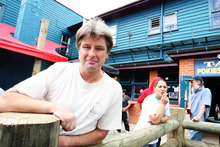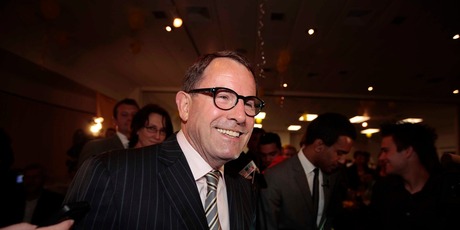Written in 2009 it pays to re read what Grant wrote.
NZ Herald
The new Government has promised to review all spending under its control. What it should also consider is the size of the industry recommending the changes.
The ancient Greek philosopher Heraclitus once said that "the only constant is change". In New Zealand, the growth of civil servants and consultants advising government departments has grown at a greater rate than the Government's budget.
What's scary is that the government sector has seen growth greater than the economy. The two major parties in the past have been so diametrically opposed that changes have been frequent. New Governments have tried to make considerable changes during their first term and struggled to find uses for those extra staff for the rest of their period in office.
One of the arguments in favour of MMP was to involve more collaboration to smooth the tug-o-war changes between Labour and National-led Governments. Five MMP elections later, the number of people advising those decisionmakers has gobbled up chunks of Government surpluses.
Steve Maharey gained his profile by slamming a "culture of extravagance" within the Welfare Ministry. I once asked him whether his ministry had an exit strategy should he place all the unemployed into jobs.
His response was brief: "No." Two terms into his charge the country supposedly had the lowest unemployment in recent memory and yet the welfare budget continued to grow.
An administrative body needs the right incentives to achieve its goals. There is no point asking civil servants to plan their redundancy.
The worst part of our political system is its antagonism with the economic cycle. The last election saw the Labour-led Government booted out over red tape and waste during a period of considerable economic and government growth. The National-led Government inherited a bloated government sector at a time of imminent economic strife.
The last time our economy was this bad was after the 1987 crash. The political ramifications of economic reforms during worsening economic conditions meant the Government carried the can. As former US President Woodrow Wilson said: "If you want to make enemies, change something."
The risk that you run when making too many changes is that it creates an industry that tries to be self-sustaining.
The Resource Management Act and local government reforms were passed during a recession. While both reforms were meant to deregulate and streamline processes, those involved in the processes have managed to build a self-feeding monster.
Local governments say they have inherited more responsibility from central government regulations including "uniform" infrastructure, resource management and building codes. Why then is there so much inconsistency between the councils when trying to achieve similar goals?
Councils are often run by managers and elected officials who try to justify their existence. What looks better on a CV than a growing organisation? And what gets you re-elected - an arts festival or a sewage plant?
The growth of local government has resulted in fewer people taking responsibility. Unpopular decisions are often delegated to independent reviews, reports or committees.
The biggest problem I see in my industry is the self-interest of those advising local government. Why would a consultant planner try to streamline a district plan if it reduced their potential work? Recently, a planner quadrupled the size of a district plan and was recognised for "significant contributions" to the "practice of planning".
The differences between council processes can be vastly different. I've worked with one council which had a town planner authorised to make decisions. Another council only allowed a committee to make decisions while a third used big city consultants who made recommendations to a committee.
The town planner could give you a straight answer, the second council's staff shied away from giving any answers, and the consultants for the third council would be the ones asking superfluous questions.
The result of such disparity in accountability by the three councils is inconsistency of decision-making, a lack of transparency and increased risks. Time, cost and quality are the victims.
Councils lacking direction are breeding grounds for parasites. I've watched top lawyers and landscape architects take almost two years to design a poplar hedge between two neighbours.
I am disgusted by central and local government organisations' inability to rein in consultants who drag out processes during the economic downturn. What took one month during the building boom now for some reason takes more than six months.
Merging and purging of the civil sector will result in splurging by civil servants if they aren't given the right incentives to deliver value to those paying their salaries. The risk of not doing so is an industry of consultants larger than the civil servants they replaced.
* Grant McLachlan is a planner and lawyer.




